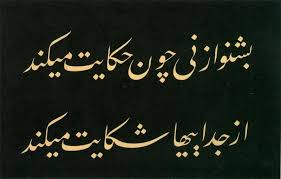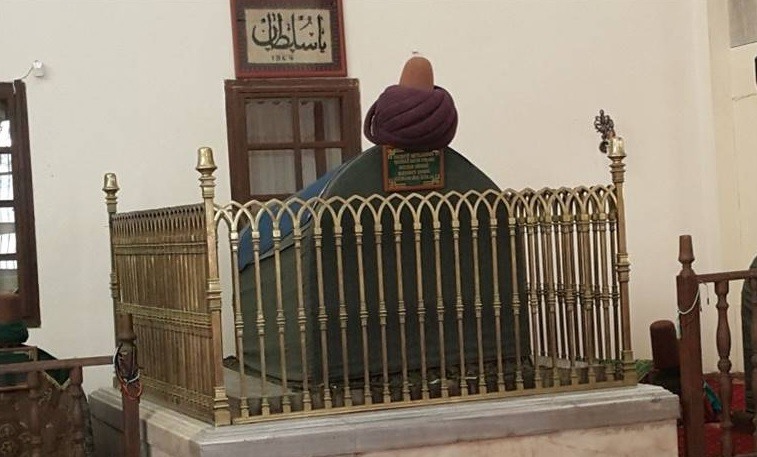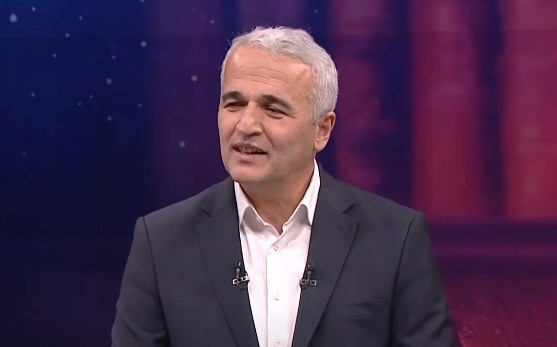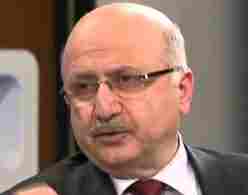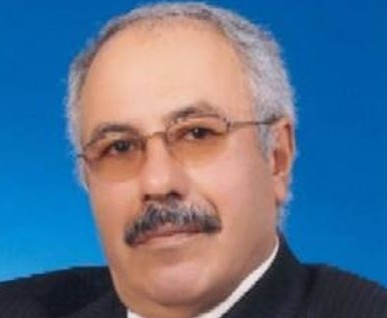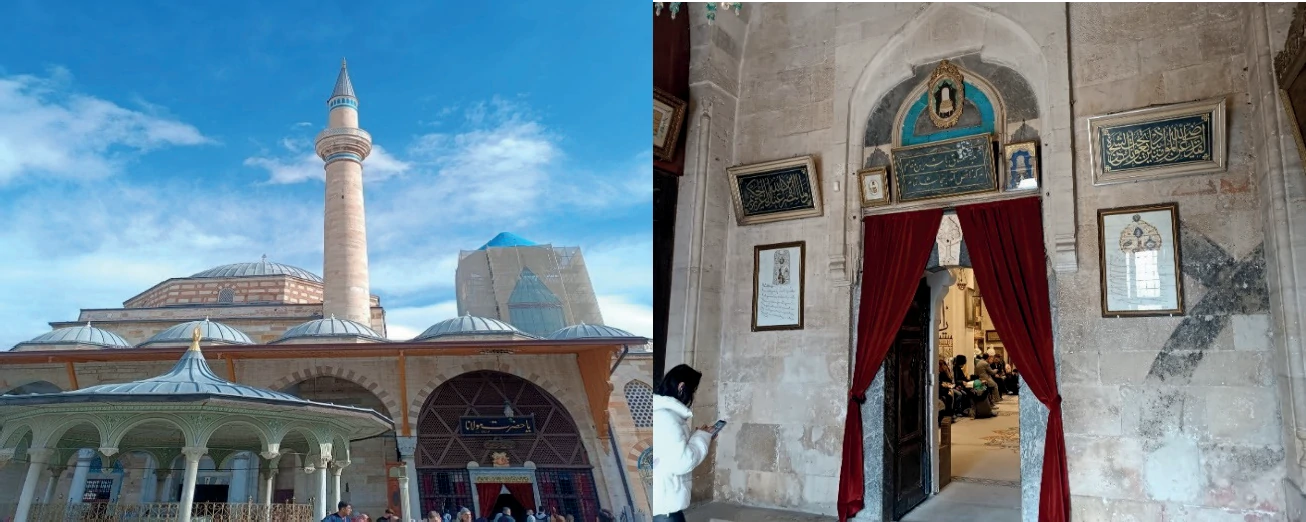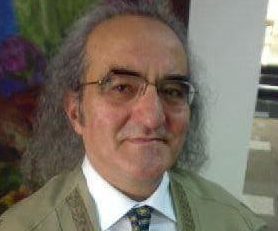MODERN HUMAN RIGHTS FROM RUMI’S PERSPECTIVE
MODERN HUMAN RIGHTS FROM RUMI’S PERSPECTIVE
Ergin Ergül1
Introduction
Human rights, in its widest definition, means undeniable and indispensable natural acquirements arising from the fact that a person exists as a human being. These rights are universal and apply without discrimination for ali. Human rights are based on human dignity and individual value. in modern times human rights have been built on the concept of human dignity. The aim of human rights is the protection of human dignity.2
Human rights, although it is one of the modern term concepts, are as old as the history of mankind, as content and emphasis, and as an unnamed reality.3 Today, named as the age of human rights, is also an age of individual and massive violations of human rights abuses. Respect for human rights, respect for fiındamental rights and freedoms are the most sought-after requests, and although they are emphasized on every occasion, the applications of even the most democratic countries are not at brilliant. Moreover, the approaches and practices of countries that have recently been champions in the area of human rights in the past, have become the most important problem in the field of human rights protection. Universal sage and thinker Rumi is one of the most important universal personalities that can be inspired among the spiritual architects of the past bright civilization of the Islamic world, when contemporary and global issues of law and politics are concerned, especially human rights and rule of law.4
1. Jalaluddın Rumi and Human Rights
Mawlana Jalal ad-Din Muhammad (1207-1273), berter known in the west as Rumi, is one of the greatest sages, universal thinkers, spiritual masters and mystic poets of ali times. From the 13th century to the present day, he has continued to guide whosoever wants to know himself/ herself, to understatıd the meaning of life and to find the truth. Besides being an excellent guide for personal and spiritual development, he is also a perfect source of inspiration in terms of social development and fînding solutions to universal problems. Rumi’s influence crosses cultural and national boundaries.
The basic messages that were derived from his thoughts hundreds of years ago and that shaped the humanity are main reasons behind his immortality.1 Today, the points put fonvard as fundamental or global values with the aim of solving the mounting problems of this age render the value, importance and difference of these messages much more clear and comprehensible.2
The second half of the 20th century was a period when many important guiding and binding legal documents were adopted in the field of human rights at both universal and regional levels. These efforts were Consolidated through judiçial or semi-judicial mechanisms such as the United Nations Commission on Human Rights and the European Court of Human Rights. Finally, the largest international organization with the highest number of members (57 countries) after United Nations, the Organisation of Islamic Cooperation created an 18 member ‘Independent and Permanent Human Rights Commission’ in 2011.
Moreover, national human rights institutions have been established to examine the grievances related to human rights violations in many countries and the opportunity of individual application to supreme courts has been introduced.
Despite ali these efforts, quite serious and common individual and massive human rights violations continue to exist in the world.
Even though the respect for human rights and basic rights and freedoms are issues that are most frequently brought up and emphasized on every occasion, the implementation reports of even the most democratic countries are not at ali shining.
We can observe that in the social sciences, people make use of Rumi extensively especially in the fields of psychology and psychotherapy. But the same cannot be said for the fields of social sciences as law, politic and administration. in fact, Rumi has many things to say about the understanding of this age and he can make great contributions in these fields. This is because in his works he addresses the unchanging essence inside people and expresses the basic and universal values of society. What he calls ‘justice’ in his works is called ‘state of law’ or ‘rule of law’ in our age. Many actions that he regards as ‘cruelty’ from which he telis people to refrain are called ‘violation of human rights’ today. Many issues that he suggested are currently called ‘good goveraance’. Even though the adverbs and nouns change, the content is comprised of the same immutable values.
Rumi is primarily an intellectual, a scientist and a lawyer able to speak Persian, Turkish, Arabic, Greek and Hebrew; secondly he is the greatest poet of ali times with his poems on love, justice and freedom accompanied by mystical passion and pain, and above ali he is a universal sage and thinker. Even though today he is more vvidely known as a poet and a sage, looking with expert eyes it is possible to identify surprising remarks and perspectives of his in many diverse fields ranging from physics to law and from biology to sociology.
Human dignity and social justice are at the centre of his world of thoughts. He became Mevlana or Mowlana (Our Master), lover and master of not just a small group around him but of everyone as he defended human rights without any discrimination, and struggled for the prosperity of the people and for fair and good goveraance. in this respect, Rumi is not only the poet of love, which is the source of every movement in the universe, the vigour that reaches from the atoms to the galaxies and the dynamism, but he is also the poet of social life and justice which is the foundation of the state. in spite of the soul of the odes, in some of his poems he deals with social issues, criticizes the corruption of administrators and judges and mentions of the uprising against injustice and the value of freedom. Furthermore his understanding of improvement is based on the freedom of human soul. Hence, the poet of justice, freedom and love is the best title to describe him.
10 December, on which date the Universal Declaration of Human Rights was accepted in 1948, is celebrated as human rights day, and this week is celebrated as human rights week ali över the world. As an interesting coincidence, the following week covers 17 December which is the day of Rumi’s migration to the world of eternity and is described as the wedding night by Rumi himself. So the week of human rights should also be a time to give voice to Rumi’s holistic human rights approach, besides upholding human rights in general.4
2. Free People
Freedom and justice are the fundamental and universal elements that people have been in search of since the beginning of history. Hovvever, only the existence of the both can help people reach their aims and desires İlke a bird with two wings. in this context, one should remember the following words of Rumi:
Do not attempt to fly without a wing! He also says: You will have two wings to fly – not one.
Rumi is a real free spirit with his words and way of life. He also describes himself as “a free sea”:
I’m a sea,
Overflovving from its existence itself,
A sea endless and limitless,
And vast as much as possible,
Without any coast, a free sea.5
Indeed, as highlighted in one of his lyrics;
River water is sweet, but it can never be compared to the grandeur of the sea. How can be comparable becoming a minister for a president with getting rid of ali restrictions and ali bonds and being a free man!6
in another rubai, he relates that he would never swap his freedom for slavery:
As long as my bowl of buttermilk is in front of me, By God, I have no leaning on anybody’s honey. Even if poverty threatens me with death, I would never seli my freedom in exchange for slavery.7
He describes gracious people like himself as “more cheerflıl than rose8 and freer than cypress.9 Because according to him:
AH the people who are walking in the way of love are sultans. There is no place there for servants. Anyone who loves Allah never can become a servant of another person.10
in one of his lyrics, he states:
How beautiful is a country of freedoms which is not under the command of anybody.11
Furthermore he encourages people to be free individuals, act freely and not to let the natural freedom of their minds be damaged. He says in the Masnavi:
Break your bonds, be free. My child!12
Show yourselves to be “free” (püre and noble) as the cypress and the lily.13
March free like a horse!14
Turkish thinker Nurettin Topçu (1909-1975) describes the ideal person Rumi looks for as follows:
A completely free man who gets rid of ali records is the ideal person he is looking for.15
Rumi explains this in the following lines;
Be the slave of someone whose heart glitters Instead of wearing the crown of the Sultans.16
And he makes this wonderful remark:
What (how great), indeed, is the strength of the blind conformity of the vulgar!17
He recommends thinking freely and independently, instead of being a person shepherded in a mass of people. in another couplet from the Masnavi he says:
If you will vvatch, get into the habit of watching vvithout imitating anyone… If you will think, then think with your own mind!
He believes that something will be valuable as long as it is realized in freedom. Rumi, who tries to see the freedom in the inner world of people, argues that being tied to something with fake and temporal ties wül harm the freedom of a person. He thinks that freedom, which he describes as being saved from internal and external ties, is very important for thinking.18
Therefore he clearly puts forvvard that a person failing to be free in his intemal world cannot resist the pressure on his external freedom and can defend neither his own nor other people’s rights and freedoms.
Let’s see how he dignifies the people with free thoughts in one of his rubais:
Those whose hearts are free
Have a different soul,
Püre jewel excavated from a different mine. 19
His free heart meets a püre pearl in another rubai:
If the heart is free, it beats in a totally different soul,
All püre pearls are in different mine.20
Only a free person is worth following which he emphasizes saying:
If you fınd a free person, stick to him;
Because a free person is quite unique in this world.21
3. Free Society
Rumi has a pro-freedom and anti-prohibition approach iri the social and legal fields. According to his approach, the essence is freedom. When there are prohibitions, people are much more attracted to the things that are prohibited. If the outcome desired to be achieved through prohibition does not occur, introducing prohibitions on a specific issue will bring damage instead of benefit. He emphasizes this truth saying;
People are passionate for whatever they are denied.22
He explains in his book of “Fihi Ma Fih”:
For instance, take a loaf of bread, put it under your arm, and deny it to others, saying, “I will not give this to anyone. Give it? Why, I won’t even show it. ” Even if that loaf had been cast away and the dogs would not eat it because bread is so plentiful and cheap – yet the moment you begin to refuse it, everybody is after it and sets their hearts on it, pleading and protesting, “We want to see that bread which you refuse and keep hidden. ” Especially if you keep it hidden for a year, insisting emphaticaily that you will neither give it away nor show it, their eagerness for the loaf passes ali bounds, since, “People are passionate for whatever they are denied.23
It is widely known that prohibitions make the problems that could be easily solved by other humanitarian methods much more complicated. Indeed, it has been observed that prohibitive policies brought by ideological approaches in many countries in recent past caused many social problems whose effects can stili be felt today.
History is witness to the fact that dictatorships and totalitarian regimes where prohibitions were common could not be long-lasting in their aims.
The aim should not be prohibiting a practice that is adopted by people but not welcomed by intellectuals and administrators; but instead it should be bringing an alternative to people in the fıelds of poetry, music and dance as Rumi did. His poetry, ney and sema will continue to attract attention as long as the world stands.
4. Holistic Human Rights
After putting fonvard Rumi’s approach to free people and a free society, I deem it necessary to describe and explain his view on human rights as “holistic human rights” which surpass today’s understanding.
We can reveal the difference and originality of Rumi’s human rights understanding from today’s human rights teaching with “holistic” expression. Because Rumi’s approach to human is holistic. First of ali, from his point of view, a person is not just a simple, ordinary crearure created from water and soil and solely consisting of flesh, bone and blood. Human being is a perfect system with its material and spiritual dimensions, the essence of the universe and the purpose of its creation.
This view also points to his understanding of human rights. in our view, its holistic understanding of human rights rises on four basic principal coluırrns. These are first human dignity, the second is the aim being, the third is the principle of unity, and finally the principle of equality.
4.1 Human dignity
in modern times, the concept of human dignity has become a concept built on human rights. Today it is generally accepted that the main objective of human rights regulations is the protection of human dignity. Human dignity is a feature that makes human valuable.24
A person is the heart of the universe. This understanding is at the centre of Rumi’s human understanding and human value are in the center of Rumi’s world perspective. Human is the heart of the universe worldview. Rumi not only considers a person as an earthly creature but also sees him/ her as a spiritual being which has a special role within the social system.
He does not see people as if they are formed by separate parts such as mind, soul, body and brain. He considers them as a whole and as a system like the universe with ali their components whether they are visible or not.
Some philosophers also say “a person is microcosm, a small universe”. On the other hand, according to Rumi, who reviews people by taking into consideration the real entity, internal world and essence hidden inside them, each person is macrocosm, a big universe. Rumi explains this in Masnavi as follows:
O man, you are apparently microcosm (a small universe), but in reality macrocosm (great universe)”.25
Undoubtedly, the theory and practice of human rights, which will be derived from Rumi’s concept that sees humanbeing as macrocosm, will be far more comprehensive, deeper and more holistic than the human rights approach resulting from the understanding that evaluates humanbeing as microcosm.
Rumi uttered every one of his words for humanity. The human being is the most honourable creature according to him. God created man meticulously, blew his own soul into him and dedicated food and other useful things on earth to him. His following superb quatrains express these thoughts of him very well:
You are more precious than heaven and earth.
What more can I say?
You do not know your own worth.26
You are another version of the divine book.
You are a mirror of the beauty of God that created the universe.
Whatever exists in the World, it’s not outside of you.
Whatever you ask for, ask for it in yourself, seek it in yourself.27
You are the true transcription
Of the Archetype Divine.
A glass through which the Sun’s
Own loveliness does shine.
Within, or without,
Wherever it may lie,
Accept every desire,
And declare, ‘”it is me! ’28
Man, no bigger than a kneading-trough (scooped in a log),
has surpassed (in glory) the heavens and the aether (the empyrean).29
(That spirit created) in the best proportion surpasses the empyrean: (that spirit created) in the best proportion is beyond (the range of) thought.
If I declare the value of this inaccessible (pearl), I shall be consumed, and the hearer too will be consumed.30
There is a life-force within your soul, seek that life.
There is a gem in the mountain of your body, seek that mine.
O traveler, if you are in search of That
Don’t look outside, look inside yourself and seek That
He thinks speaking different languages does not constitute a barrier or a reason for disintegration between people. On every occasion, he emphasizes that the discrepancies betvveen people are just on the surface and the essence is human dignity;
As we, ali people, come from pre-eternity, the common feelings of aspiration and desire for those times bring us together and make us a whole. However when the words start, we ali cali out to the Friend in different languages. Ali of us have the same feelings but different languages.31
Not the ones speaking the same language, but the ones sharing the same feeling understand each other.
4.2. Human as an aim being
Rumi said ali his words to human beings. For him, human is the supreme creature. Human is a being that God has created from his spirit, specially created and dedicated to the use of the blessings on earth. The focal point of the universe, the essence and purpose of existence. The following verses shows this thought very well.
You are the treasure of the world, and the world is not worth half barley. You are the basis of the universe, the universe is fresh because of you.32
My friend, a human’s life is a precious pearl. This life that is created as the most beautiful form (human form) precedes the ninth heaven. This life that is as the most beautiful form is beyond thought.
If I teli you the value of this priceless jewelery, I burn, the listener also burns”33
Rumi, in his works, repeatedly emphasized man’s superiority: “The aim of the creation of universe is man”.34
Rumi describes this idea in terms of branch-fruit analogy in the continuation of the verse that describes human being as macrocosm:
Therefore in form you are the microcosm, therefore in reality you are the macrocosm.
Externally the branch is the origin of the fruit; intrinsically the branch came into existence for the sake of the fruit.35
If there had not been desire and hope of the fruit, how should the gardener have planted the root of the tree?
Therefore in reality the tree was born of the fruit, (even) if in appearance it (the fruit) was generated by the tree.36
Therefore, in the mind of Rumi, the principle of “human not for the universe, universe for the human” applies and human is the aim being. The result of this aim being is him to have individual autonomy, equality and natural rights.
If ali the world of existence is to be compared to a tree, Rumi regards human as the fruit of this tree, that is, the aim being of family of existence, in parallel with the lore tradition.
Human is the absolute member of the being family because he has a potential that possesses in hisself the knowledge of ali existence, the entire divine names and adjectives. Human is like a complete book bearing the knowledge of ali existence.37
O you, the copy of the divine book, You the miror of the beauty of the sultan, Nothing exists in the universe except you, Search for yourself, this is you.38
Human, only a dough boat in length, has exceeded both the sky and the ninth heaven.’39
For this reason, Rumi invites the person to discover his own truth and recognize his value by understanding himself and also to lead a life as required:
O people, who are superior and brighter than the moon and the moonlight! O precious beings despite being created from water and earth! Why do you wriggle in clay, you do not shine your true presence.40
4.3. Principle of unity
in the mind of Rumi, another principle of the holistic human rights approach is the priciple of unity or the idea of the being’s unity in the multiplicity.
He expresses this in a lyric as follows:
in the God’s world of unity, in these various kinds of beings there is no place for numbers.
Number is a thing that is generated to explain this difficult issues between the five senses and the four eleraents! You might consider counting hundreds of thousands of sweet apples one by one. If you want ali of them to be one, squeeze them ali, take the water out! Can’t you see. Hundreds of thousands of grapes are hidden in a round crust. They become the sultan’s wine when removed from their crusts by crushing.41
According to Rumi, “the whole universe and ali the people are like a single body”.42
Therefore it would not be an acceptable behaviour from the humanitarian perspective if the people, institutions or states withpower and opportunities become indifferent to human rights violations in any part of the world.
Differences and contradictions observed in humanity looking at each individual, turns into harmonization, cooperation and solidarity towards the same aim when it is viewed as a whole, in other words as a body by the expression of Rumi. From this, the intellectual basis of third-generation human rights such as the right to environment, the right to development, the right to peace that are expressed as the rights of solidarity, can be derived.
4.4. Equality principle
While human rights theory of today ensures social and political equality between people, Rumi’s equality approach describes humans as beams radiating from one light source and drops of the same ocean. it regards humans as branches of the same tree. So it foresees an exact and integrated equality on both cosmic and physical terms. Every person has the same honour in front of God regardless of their physical characteristics, environmental, social and economic conditions. Efforts should be made for this understanding to be widely accepted between people in both social and political fields. And the necessary administrative, institutional and legal mechanisms should be created with this aim.
Rumi in ali his works sees human as a supreme being beyond having certain inherent rights. He approaches to human without any distinction of appearance, race, nationality, status, sex, religion, opinion, ete. He does not approve diserimination and different treatment to people because of their thoughts and statues.
Rumi expresses this universal manifestation, which can be seen as the starting point of the UN Universal Declaration of Human Rights declared eight centuries ago in 1948:
There is no servant or slave, ali people are brothers!
Rumi’s message embraces every one. in one of his rubais, he says:
To pretend superiority, to be şelf righteous, to despise others is neither meaningless nor empty. Ali people, we ali are the servants of the same palace.’43 He cares about people as individuals regardless of any labels acquired after coming to this world. And he objects to behaviours causing people to be despised, be subject to diseriminatory treatment and be treated as ‘others’ because different nationalities and religious beliefs. in this respect he says:
O you who is searehing for faults in everything. Do not look down on anyone. God has a part of him in everyone regardless of their nationalities and religions. The people are the mirrors of God.44
He does not regard language differences among people as a barrier and a reason for separation. He says;
Ali the people, since we come from ali eternity, we ünite in the longing for there, but when we start speaking we ali cali our friends in separate languages. We ali feel the same but our languages are separate.45
According to him a person should not try to promote himself/herself by taking advantage of the deflciencies of other people or by searching for their mistakes, faults or mischief. She/he should give value to and behave towards everyone equally and recognize the essence hidden inside them. Whatever a person pursues, that thing becomes him/her. S/he identifies with what s/he searches for. in one of his rubais, Rumi say s:
You are mine so long as you seek for the jewel in the mine,
You are bread as long as you desire for a morsel of bread
If you understand this secret meaning, then you understand everything;
You will be whatever you are looking for…. 46
in one of his lyrics, he says:
Dou you know how you can understand what a man is worth? With what he is looking for. Whatever he is looking for, he is worthy of it.47
Indeed, even in the era of Mongol attacks and Crusades, where racial and religious conflicts were most intense, he has vigorously expressed the equality of people without discrimination of race, language, religion and gender, and reflected this in his life and practices.
5. A Universal Defender of Humarı Rights
Rumi is one of the rare sages and thinkers to give valid messages to ali humanity and for ali ages. He interprets people, humanity, life and the immutable values in a holistic approach and presents prescriptions for the problems and dilemmas of ali humanity. He expresses his role on this issue like a universal defender of human rights in a poem from his Divan-ı Kebîr as follows:
We are like the sun in this world. We came here to bring life to everyone and be beneficial to the whole humanity.
We came to be friends with those left in sorrow with broken hearts, we came to share their sorrow and sadness.
We came to this world to bring those despised by the others and smashed under their feet after falling down on the ground to the rose garden and to bestow them with joy.
We are not the sole property of some people like gold. We are like oceans, we are like minerals, and we belong to everyone in this universe.
We are not restricted to utterances or speeches. A priceless treasury is hidden inside us.’ 48
Rumi is also quite sensitive to torture and lawlessness or injustice, which are the opposite of justice. He is aware of the fact that the cruel and the oppressed may sometimes excbange roles and that everybody has the potential to be cruel. For this reason, he wants to raise the awareness of people who have the authority, high status or economic power ete. so that they do not take the role of the cruel.
He objects to arbitrariness, force, injustice and human rights violations on every occasion. He believes that those walking away from justice, being unfair or cruel will find justice sooner or later. The law will eventually cali them to account for injustice. Because according to Rumi:
The iniquity of evil-doers became (for them) a dark well: so have said ali the wise.49
Actually if people depart from justice and the supremacy of lavv, violate human rights and make the guilty innocent and the innocent guilty by relying on their temporary povver, authority or impact, no matter what their political, judicial, administrative, marital or deteetive positions and duties are, they will certainly be cooking their own goose. According to Rumi, they will be digging their own dark wells into which they will fail in the future. Even though it seems everything is ali right at present, it actually means that they continue to dig the wells they will fail into önce completed. Because in parallel with the principle of universal justice, the heavier and bigger their cruelty and injustice are, the deeper will be the well they are digging:
The more iniquitous one is, the more frightful is his well: Justice has ordained worse punishment for worse sin.
O you who from iniquity are digging a well for others, you are making a snare for yourself.
Do not weave (a cocoon) round yourself, like the silkvvorm, You are digging a well for yourself (to fail in): dig with moderation (not too deep).50
Following these assertions, Rumi reminds the cruel of divine justice and warns the dictator saying:
Deem not the weak to be without a champion: recite from the Qur’an (the words), When the help of God shall come.
If you are an elephant and your foe fled from you, lo, the retribution came upon you, birds in flocks! ’51
If any poor man on the earth beg for mercy, a loııd tumult falls on (arises among) the Hoşt of Heaven.
If you bite him with your teeth and make him bleed, toothache will attack you- how will you do (then)?52
The power that the weak and victims rely on is the divine power, which is the source of ali kinds of power. And when that power comes in to help, even the weakest individuals and nations unexpectedly defeat the strongest, the most strict and repressive dictatorships and superpowers. Both the recent and remote history are full of examples of this kind, aren’t they?
Again he warns the oppressive administrators, saying: Do not, then, bite the innocent with your teeth: bethink you of the stroke that is not to be guarded against.53
Rumi stands against any kind of dictatorship. With an observation that stili holds true more than 700 years after Rumi’s death, he puts forvvard how the oppressive dictatorial regimes are created and the approach the leaders should adopt with following words:
When weapons and ignorance come together, pharaohs arise to devastate the world with their cruelty.
He reminds those with a desire of dictatorship of an unchanging truth in one ofhisrubais:
We are toys before the power of God Almighty, Riches belong to Him, we are ali poor. Then what is the explanation of seeking pride? in the end, we are ali servants the same Palace.54
Rumi, who lived in one of the most tumultuous periods of world history and at a time when arbitrariness and pressure were dominant, prefers suffering to being cruel and being oppressed to oppressing others.
O poor man, thank God for your defîciency (of means), for (thereby) you are delivered from being a Pharaoh and ungrateful (for Divine blessings).
Thank God that you are the oppressed, not the oppressor: you are secure from acting like Pharaoh and from every temptation.’55
in ali of his works, Rumi regards a human being as an honourable creature beyond having some rights by birth. He approaches people without any discrimination in terms of appearance, nationality, position, gender, religion, belief, ete. He does not approve of people being treated differently or diseriminated against for their thoughts or positions. His message embraces everyone. in one of his rubais he says: it is such a meaningless, empty thing for someone to regard himself/herself superior and despise others.56
The cali of Rumi to ali human beings without discrimination is:
Come, come över, more över, how long this brigandage? As you are me and I am you. How long this discrimination of you and I?
We are light of God! Why this separation among us? Why light escapes from light? We are ali from the same yeast, our brains and heads too. But under this bowed sky we see double…
Throughout his life, Rumi kept good relations with people from various social, cultural and religious seetions and gained love and respect of everyone. He addressedthe whole of humanity, saying:
I do not make any discrimination between relatives and foreigners.
He also developed this idea with a wonderful example:
A westerner lives in the West. An oriental comes to visit. The westerner is a stranger to the oriental, but who is the real stranger? Is not the oriental a stranger to the entire western world? Stili, this whole world is but a house, no more. Whether we go from this room to that room or from this corner to that comer, are we stili not in the same house? 57
Even at the time of Mongol attacks and Crusades, vvhen racial and religious conflicts were at their zenith, he influentially defended equality between people vvithout making any discrimination of race, language, religion or gender and refleeted this in his life and praetices. He also resisted and rejected with determination criticism direeted at him on these matters. And he expected the same approach and courage from everyone.
Conclusion
Today in the modern world human rights are described as the spirit of the democratic state of law. Human rights, however, are so radical and universal that it can not be confined to a single culture, a specific time and place. When our past history, our culture and our civilization, and the works of its universal thinkers and wisdoms are carefully examined, it will be clearly seen that human rights are the real soul and essence of our civilization. One of the most importnat representatives of this soul, essence is Rumi. Rising över the basic sources and principles of our beliefs and who has been infmenced by our lore tradition, Rumi’s human rights understanding is expecting to be examined and utilized in depth.
Rumi, who also has the characteristics of an efficient lawyer besides his varied and universal qualifications, puts forward many important ideas and remarks and provides recipes for the issues of freedom and human rights which are in line with the concepts and principles of today and sometimes even go beyond them.
People in our age, especially decision-makers and lawmakers, should understand Rumi, who is of universal value for ali humanity in terms of his lifestyle, thoughts and messages. They must especially leara and implement his approach to people, understanding of freedom and human rights.
When intellectuals, politicians, administrators and lawyers comprehend Rumi better, it will be possible to fiil in the concepts such as freedom, human rights and prohibition on discrimination, and to put theory into practice in this respect.
Rumi’s holistic and human-oriented approach to events and problems, his positive and solution-oriented understanding and the language of heart and love that he adopted are standing in front of us as a priceless source of inspiration for new models and strategies aimed at finding solutions for the structural problems that our world and people are facing today.
Finally, western countries which are intolerant to foreigners and treat them contrary to human dignity, and approach the human rights violations in other countries with economic and political motives and double standards while blessing rights and freedoms of their own people and societies have a lot to leara from Rumi.
However, the tragic situation and problematic reality in the area of human rights of the Eastern world, which is supposedly proud of him and feels respect and love for him, shows the trath that the Eastern world is also in urgent need of understanding and implementing Rumi’s approach to people.
In our time, countnes and govemments in the Islamic world generally remained largely out of values such as human rights, justice, freedom and equality. However, in the past these values had been the fundamental values that our bright civilization has risen above. Therefore, today, Islamic countries and societies need the most to understand Rumi’s view of humanity and understand the concept of holistic human rights and to develop strategies by acting from there, in order to overcome their own problems and to practice a universal human rights in real sense for humanity. For this, the intellectuals, academicians, administrators, politicians and lawyers of Müslim countries are in charge primarily.
1 TheMathnawi,VI/4725.
2 Can, Dîvan-ı Kebir, Seçmeler, I, p. 79.
3 Arberry, discours 12, p. 99
4 Ergül,p. 31.
5 A. Kadir, Bugünün Diliyle Mevlana, Say yayınları, 2002, p. 117.
6 Şefik Can, Dîvan-ı Kebir, Seçmeler, Ötüken, İstanbul 2009, III, p. 49.
7 Emin Işık, Belhin Güvercinleri, İstanbul 2008, p. 150.
8 A. Kadir, a.g.e, p. 103.
9 A. kadir, a.g.e, p. 15.
10 Can, Divan-ı Kebir, Seçmeler, I, p. 166.
11 İskender Pala, Mevlana, Gendaş, İstanbul 2002, p. 59.
12 Kabir Helminski, The Pocket Rumi, Boston 2008, p. 108.
13 The Mathnawi VT/4542.
14 TheMathnawiVI/323.
15 Nurettin Topçu, Mevlânâ ve Tasavvuf, Dergah Yayınlan 3. baskı, İstanbul 2002, p. 113.
16 Talat Sait Halman, Love is ali, Rumi’s life and poems of ectasy the whirling dervishes, BKG, İstanbul 2011, p. 54.
17 The Mathnawi 1/371.
18 Mustafa Usta, Dünde ve Bugünde Eğitim Anlayışı ve Rumi // http://sufızmveinsan.com/aksam/dunde.html, date of accession: 21.08.2011.
19 Helminski, p. 6.
20 Halman, p. 74.
21 Abdulbâki Gölpınarb, Mevlana Celâleddin Mektuplar, inkılap, İstanbul 1999, p. 92.
22 Reynold A. Nicholson, The Mathnawi of Jalalu’din Rumi, Cambridge, 1925., IV/3659.
23 A. J., Arberry, Discourse of Rumî, London 1961. p. 158.
24 Bulut, a. g. m, s. 2.
25 Mesnevi, IV/521 (Meyerovitch / Mortazavi, s. 867).
26 Arberrry, p. 28.
27 Can, Rumi’s taught, p. 257.
28 Fihi Ma Fih, Discours 16.
29 TheMathnawi,VI/138.
30 The Mathnawi, VI/1005-7.
31 Can, Divan-ı Kebir, III, p. 140.
32 M. Nuri Gençosman, Mevlâna’nın Rubaileri, Milli Eğitim Bakanlığı Yayınları, İstanbul, 1994, rubai nu: 228; Can, Rubailer, s. 342.
33 Mesnevi, VI/1005-7 (Meyerovitch / Mortazavi, s. 1442).
34 Abdülbâki Gölpınarlı, Mecâlis-i Seba, inkılap, İstanbul 2010, p. 98.
35 TheMathnawi,IV/521.
36 The Masnavi, by Rumi, tr. by E. H. VVhinfield, [1898], Book IV, at sacred-texts.com.
37 Osman Nuri Küçük, Mevlâna’nın İnsana Bakışı, Din ve Toplum, Haziran 2007.
38 Meyerovitch, Rubai ‘yât, p. 184.
39 Mesnevi, VI/138 (Meyerovitch / Mortazavi, s. 1386).
40 Can, Rubailer, p. 72.
41 Dîvan-ı Kebir, Seçmeler, 11/508, s. 52.
42 Can, Dîvan-ı Kebir, Seçmeler, v. 1, p. 121.
43 Rubailer, no: 1816, s. 287.
44 Can, Divan-ı Kebir, I, p. 79.
45 Divan-ı Kebir, III/1064, s. 140.
46 Şefik Can, Rubailer, Mevlana, Kırkambar, İstanbul 2008, p. 322.
47 Divan-ı Kebir, 1/297, s. 310.
48 Şefik Can, Dîvan-ı Kebir, Seçmeler, Ötüken, İstanbul 2009,11/842, p. 362.
49 The Mathnawi, 1/1309-1310.
50 The Mathnavvi, 1/1311.
51 The Mathnawi, 1/1313.
52 The Mathnawi, 1/1315.
53 TheMathnawi,IV/2815.
54 Eva de Vitray- Meyerovitch et Damchid Mortazavi, Rubai’yât, Albin Michel, Paris 1993, p. 79.
55 TheMathnawi,VI/4725.
56 Can, Dîvan-ı Kebir, Seçmeler, I, p. 79.
57 Arberry, discours 12, p. 99
Array



